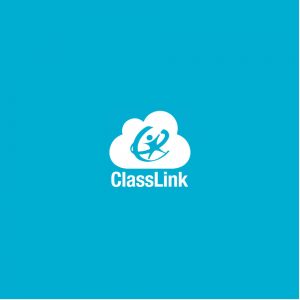Concurrent Enrollment
The Concurrent Enrollment program allows juniors and first-year seniors attending SVVSD high schools to enroll in up to two classes at Front Range Community College, Aims Community College, or the University of Colorado at Boulder tuition-free each fall and spring semester. Here are the CE program highlights:
- Students earn both high school and college elective credits
- SVVSD pays the tuition for CE courses up front at the community college rate. PLEASE NOTE: Students attending CU-Boulder in the Concurrent Enrollment Program will have additional tuition costs above the community college tuition rate. For more information visit https://ce.colorado.edu/programs/high-school-concurrent/#tuition-and-fees
- All student fees and required textbooks for CE courses are paid for by the student/family.
- Students must earn a “C” or better in the CE course.
- Grades of “D” or “F”, incomplete courses, or CE courses dropped after the drop deadline require the student/family to reimburse SVVSD for the cost of tuition.
- Students can only register for courses that are not offered in the St. Vrain Valley School District per Concurrent Enrollment agreements with all schools. (Online and night courses are not eligible for tuition payment through the Concurrent Enrollment Program.)
For more information about the SVVSD Concurrent Enrollment Program options each fall and spring semester, visit svvsd.org/college-concurrent-enrollment.
College Essays and Interviews
Writer’s block? Interview anxiety? Check out these helpful tips from The College Board on writing a great admissions essay and practicing for an admissions interview.
Tips for Writing an Effective Application Essay
When you apply to college, you’ll need to complete an essay as part of your application. This is your opportunity to show admission officers who you are and to provide information about yourself that didn’t fit in other areas of your application. The essay also reveals what you can do when you have time to think and work on a writing project.
The number one piece of advice from admission officers about your essay is “Be yourself.” The number two suggestion is “Start early.” Check out these other tips before you begin.
Choose a Topic That Will Highlight You
Don’t focus on the great aspects of a particular college, the amount of dedication it takes to be a doctor or the number of extracurricular activities you took part in during high school.
Do share your personal story and thoughts, take a creative approach and highlight areas that aren’t covered in other parts of the application, like your high school records.
Top two tips: Be yourself and start early
Keep Your Focus Narrow and Personal
Don’t try to cover too many topics. This will make the essay sound like a résumé that doesn’t provide any details about you.
Do focus on one aspect of yourself so the readers can learn more about who you are. Remember that the readers must be able to find your main idea and follow it from beginning to end. Ask a parent or teacher to read just your introduction and tell you what he or she thinks your essay is about.
Show, Don’t Tell
Don’t simply state a fact to get an idea across, such as “I like to surround myself with people with a variety of backgrounds and interests.”
Do include specific details, examples, reasons and so on to develop your ideas. For the example above, describe a situation when you were surrounded by various types of people. What were you doing? Whom did you talk with? What did you take away from the experience?
Use Your Own Voice
Don’t rely on phrases or ideas that people have used many times before. These could include statements like, “There is so much suffering in the world that I feel I have to help people.” Avoid overly formal or business-like language, and don’t use unnecessary words.
Do write in your own voice. For the above example, you could write about a real experience that you had and how it made you feel you had to take action. And note that admission officers will be able to tell if your essay was edited by an adult.
Ask a Teacher or Parent to Proofread
Don’t turn your essay in without proofreading it, and don’t rely only on your computer’s spell check to catch mistakes. A spell-check program will miss typos like these:
- “After I graduate form high school, I plan to get a summer job.”
- “From that day on, Daniel was my best fried.”
Do ask a teacher or parent to proofread your essay to catch mistakes. You should also ask the person who proofreads your essay if the writing sounds like you.
Adapted fromThe College Application Essayby Sarah Myers McGinty.
College Interviews: The Basics
The college interview is a part of the college application process at many colleges — but not all of them. You may meet in person to talk with someone from the admission office, a current student or a graduate of the college. Or you may be able to take part in a video interview, often via Skype.
Why Interview?
The interview is rarely the deciding factor in whether the college will accept you, but it can give a representative from the college a chance to get to know you better. And the interview gives you a chance to:
- Show your interest in the college by researching information about the college before the interview.
- Share information about yourself beyond what’s listed on your transcript.
- Bring up anything in your record that you’d like to explain, like a temporary drop in your grades.
- Discuss your goals and the reasons you want to attend the college.
- Ask questions about the college.
What to Expect
You’ll talk one-on-one with the interviewer. If your parent comes with you, he or she probably won’t be in the room during the interview but may get a chance to talk to the interviewer afterward.
An interviewer may ask questions like “Why do you want to go college?” and “Why do you want to attend this college?” He or she may also ask about your high school experiences, your hobbies and your accomplishments. See more sample interview questions along with answer strategies.
The interviewer will also ask if you have any questions. Asking questions shows the interviewer that you’re interested in the college, and it allows you to get information you can’t find on a website or in a brochure. If you’re interested in a certain major, ask what the program is like. If you’re planning to live on campus, ask about campus life. Just try to avoid asking questions that you can easily find answers to on the college’s website.
The interview is a great chance to show your interest in a college.
How to Prepare
First, find out whether interviews are required, optional or not offered at all. If the college requires or offers interviews, look on the college’s website or contact its admission office to find out what you have to do to set one up. If you have to travel to the college to interview, you may want to schedule a campus tour for the same trip.
After you’ve scheduled an interview, you can do several things to prepare. One important step is to research the college so you feel ready to talk about why the college is a good fit for you. Another good idea is to do practice interviews with family members and friends. Get more information about how to prepare.
Just remember that while it’s smart to get ready in advance, you shouldn’t memorize answers to common interview questions or compose a speech — the interview should be a conversation.
More Interview Tips
You can’t pass or fail an interview, but you can make a good impression by doing the following:
- Dress nicely, not in jeans and a T-shirt.
- Arrive early.
- Be polite.
- Avoid using slang or other inappropriate language.
- Be confident but not arrogant.
- Answer questions honestly.
- Send a thank-you note to your interviewer after the interview.
Source: The College Board
https://bigfuture.collegeboard.org/get-in/essays/tips-for-writing-an-effective-application-essay-college-admissions
https://bigfuture.collegeboard.org/get-in/interviews/college-interviews-the-basics
College Resources for Students without Documentation
This website has information about Colorado ASSET, which allows eligible students without documentation to pay in-state, rather than out-of-state tuition, as well as receive the College Opportunity Fund stipend at Colorado public colleges. This site will help undocumented students and families, along with the professionals assisting them, to understand and take advantage of ASSET. If you need more information about how to support eligible students without documentation, check out this Resource Guide provided by the federal government.
Every public college and university has a website with information on ASSET. Here’s a few samples from local schools:
University of Colorado – Boulder
Colorado State University – Ft. Collins
Metropolitan State University of Denver
University of Northern Colorado
Additional College Search, Financial Aid, and Test Prep Resources
- student.naviance.com/svvhs
- collegeincolorado.org
- coadmissionstool.org
- NestToWings.org – college application and financial aid seminars and resources for students and parents
- gpacalculator.net – see what you need to do to raise your GPA
- actstudent.org
- collegeboard.org
- bigfuture.collegeboard.org
- cappex.com
- commonapp.org
- going2college.org
- collegeconfidential.com
- collegetoolkit.com
- offtocollege.com
- mycollegeoptions.org
- noodle.org
- collegeweeklive.com
- cotrainingproviders.org
- collegecovered.com
- ImFirst.org and striveforcollege.org– partner web sites offering college search and financial aid assistance for First Generation Students
- gocollegenow.org – financial aid search and application assistance for First Generation Students
- nche.ed.gov – National Center for Homeless Education – offers assistance regarding the college application and financial aid process for homeless students
The links provided above are based on information created by other public and private organizations. St. Vrain Virtual High School does not control or guarantee the accuracy or completeness of this information. These links are provided for the user’s convenience, and the inclusion of these links is not intended to endorse products or services offered, or views expressed, on these websites.




